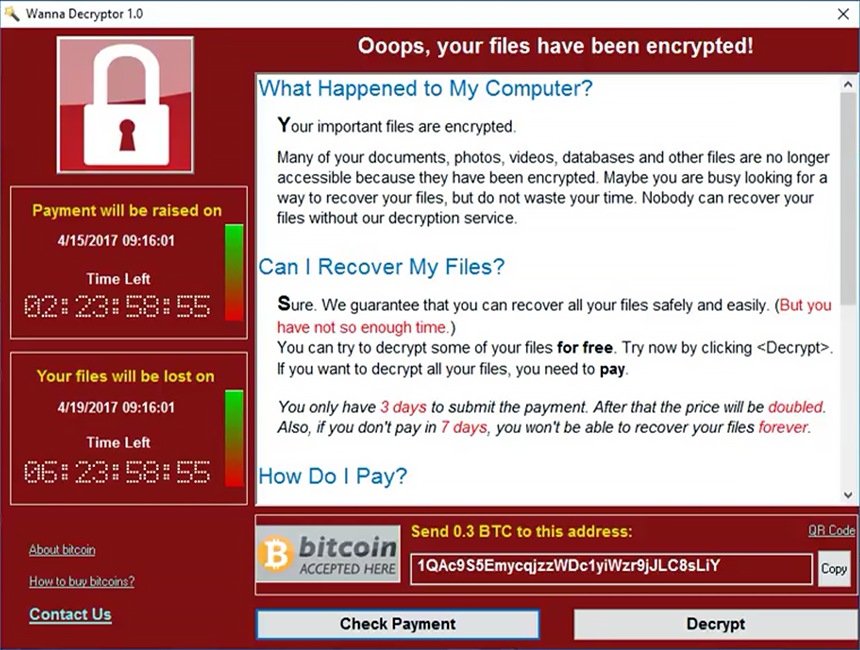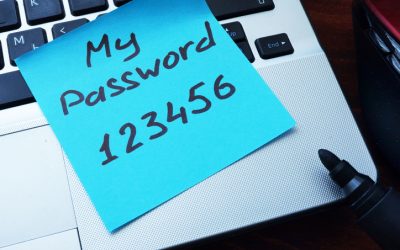On May 12, 2017 a new strain of the Ransom.CryptXXX (WannaCry) strain of ransomware began spreading widely impacting a large number of organizations, particularly in Europe. This virus specifically targets Microsoft Windows computers.
A hacking tool known as Eternal Blue, developed by US CIA has been enhanced by the hackers to super-charge an existing form of ransomware known as WannaCry, three senior cyber security analysts said.
Wcry is demanding a ransom of $300 to $600 in Bitcoin to be paid by May 15, or, in the event that deadline is missed, a higher fee by May 19. The messages left on the screen say files will remain encrypted. It’s not yet clear if there are flaws in the encryption scheme that might allow the victims to restore the files without paying the ransom.
If you have yet to install the Microsoft fix—MS17-010— you should do so immediately. You should also be extremely suspicious of all e-mails you receive, particularly those that ask the recipient to open attached documents or click on Web links.
If you are an existing client of ours on our Managed Services Platform, you would have already received the fix through your weekly patching cycle, If not please check with your IT and or Security provider to ensure you are covered
Read Reuters Article : http://www.reuters.com/article/us-britain-security-hospitals-idUSKBN18820S
How to Find the Right IT Services Company
If your business has made the decision to contract with an IT services company for IT support, you’ve made the right choice. However, you’re not done yet. You still need to choose the IT services company that’s best for your business. In most markets, you’ll have...
Critical Update From The NSA
The NSA Is Urging To Patch Remote Desktop Services On Legacy Versions of Windows The National Security Agency is urging Microsoft Windows administrators and users to ensure they are using a patched and updated system in the face of growing threats. Recent warnings by...
4 Strategies For Super Strong Passwords
Some days it seems like everything in our lives requires a password: banks, apps, debit and credit cards, online banking, business applications, healthcare accounts . . . the list is literally endless. Technology professionals recommend that you use a different and...



